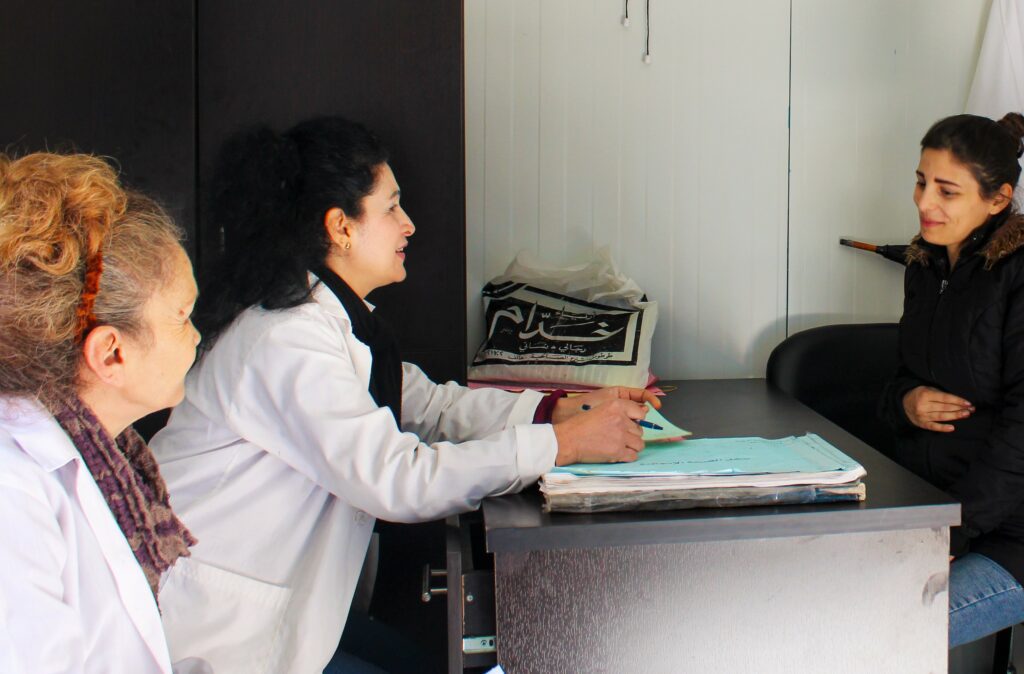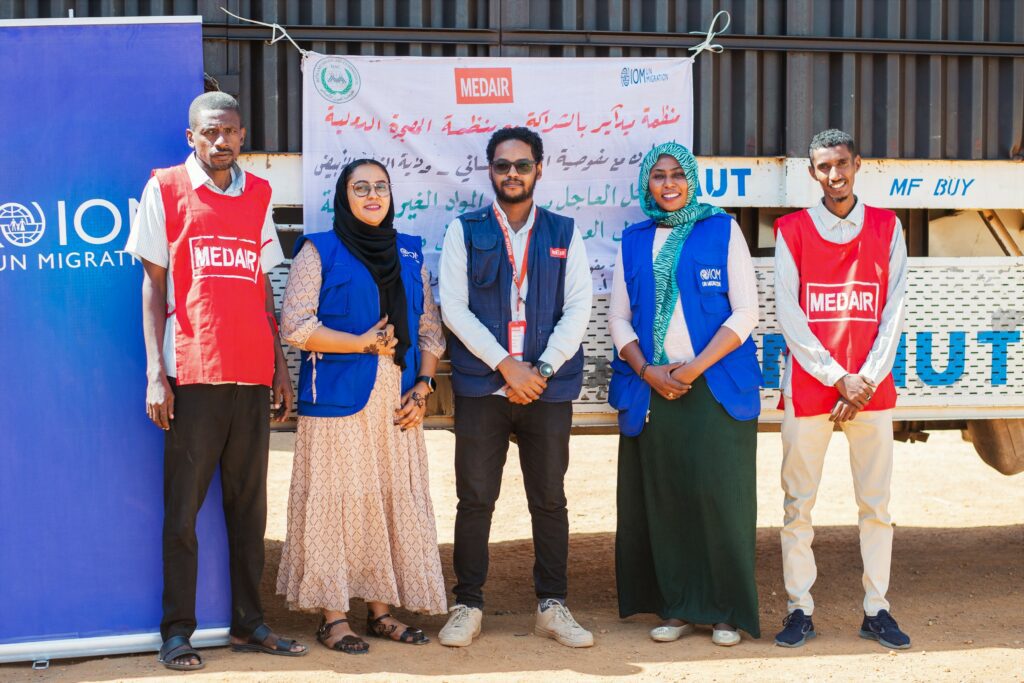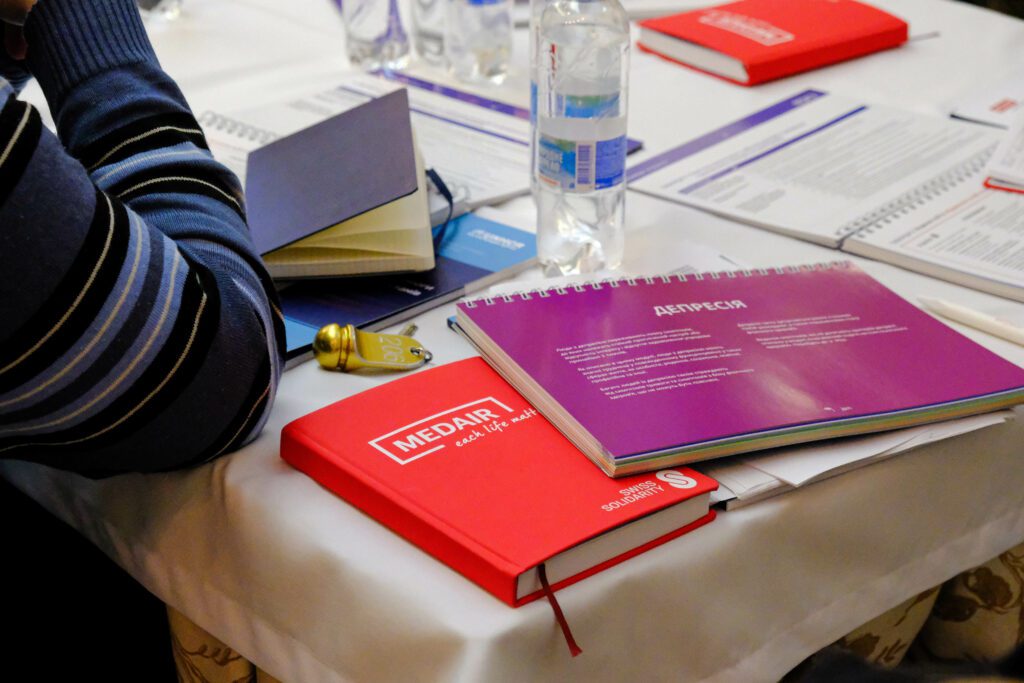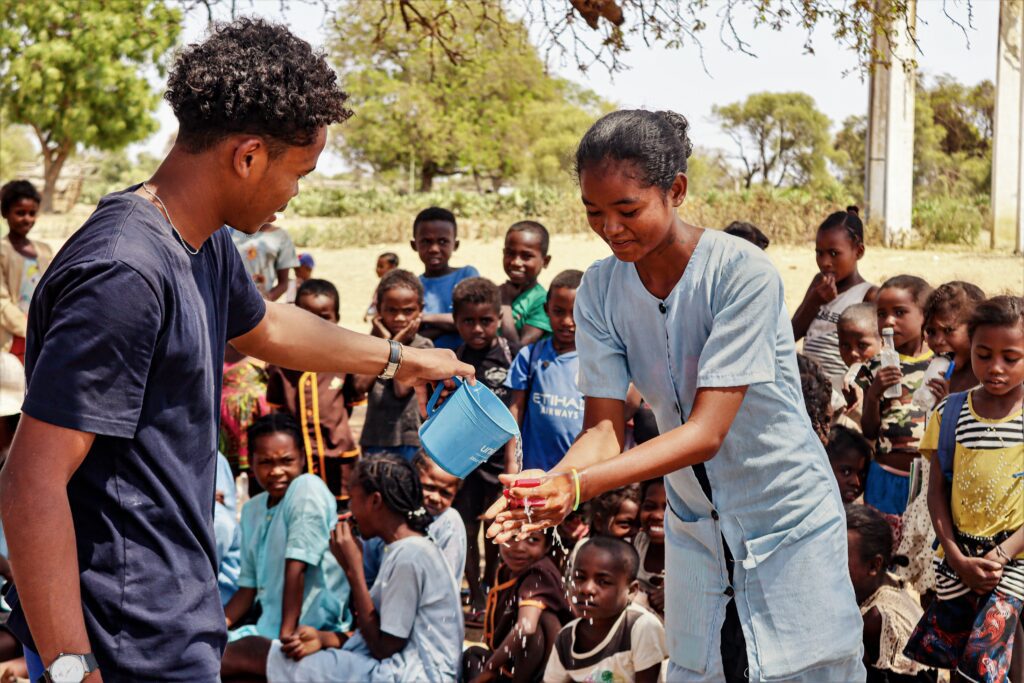1,000 kilometres
Health care for Syrian refugees living in Jordan can be prohibitively expensive. To support refugee families and vulnerable Jordanians, we help cover the costs associated with urgently needed medical procedures, often for procedures linked to maternal and child health.
Health care for Syrian refugees living in Jordan can be prohibitively expensive. To support refugee families and vulnerable Jordanians, we help cover the costs associated with urgently needed medical procedures, often for procedures linked to maternal and child health.
Sometimes, the work of our health teams means that children and parents who have recovered from illnesses can go home to be with their families. Other times, like in the case of Farhana, the best we can do is to help reduce the stress a family feels as they mourn the loss of a loved one.
My name in Farhana, and I am 37 years old.
My family fled Syria in 2012. We were under attack in the city where we lived, and we had to move from town to town for months. We no longer felt safe, so my husband and I fled to Jordan with our two children. They were nine and 11 years old at the time.
Getting to Jordan wasn’t easy. We took a truck with many other families, but the truck was small and there were a lot of children, so eventually we decided to get down and walk. The road wasn’t safe, and our children kept crying and making noise. We did everything we could to keep them calm and quiet. It took us three days to reach the Jordanian border.
When we first arrived we were sent to live in a refugee camp. We only stayed for two days; at the time the camp was poorly organised and unclean. We left and moved into an apartment in another town.
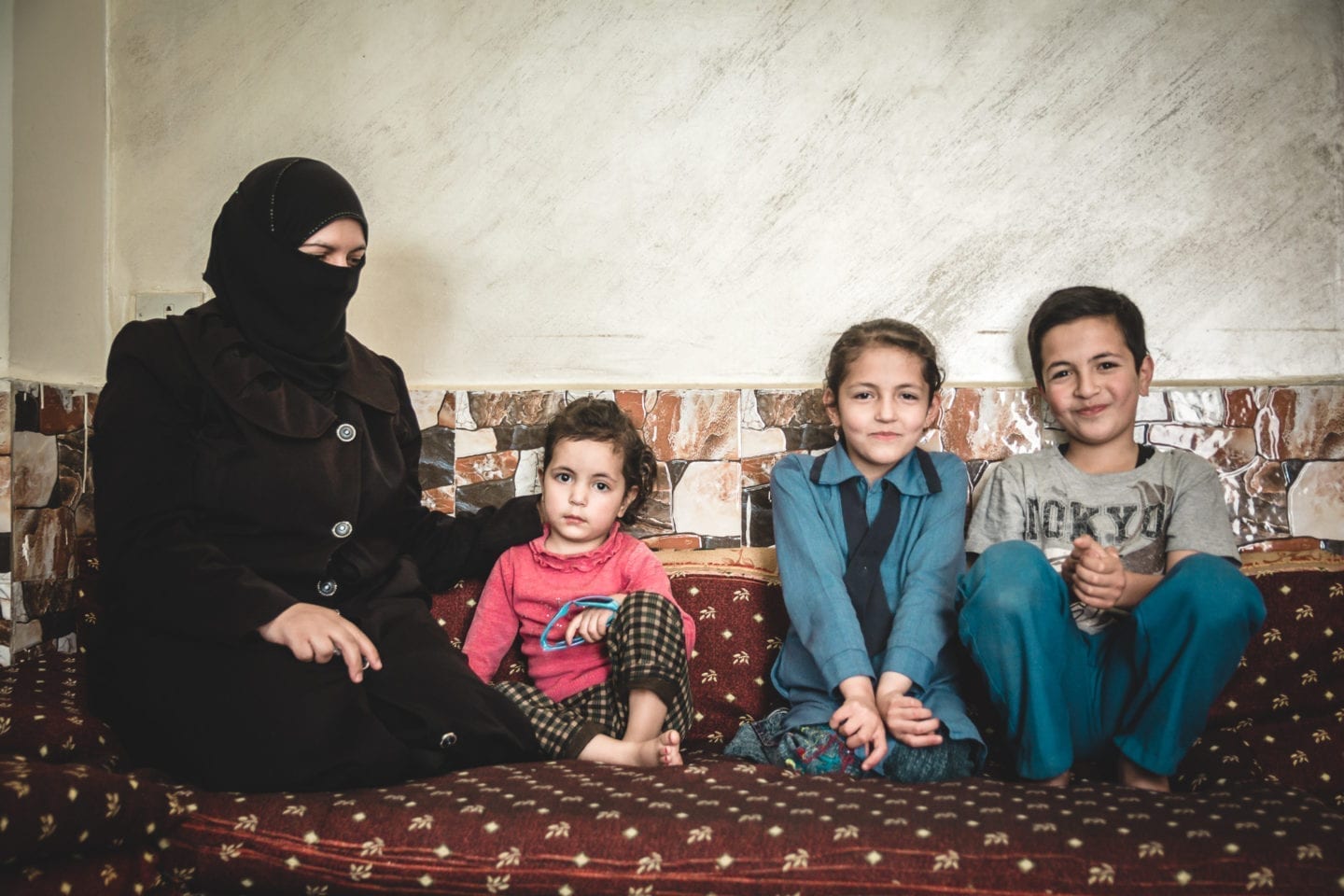
In 2015, my daughter Sham was born. Her brother and sister were too old to play with her, and she kept asking me for a new baby brother. I got pregnant two years later, and gave birth to a baby boy in 2017.
My birth was extremely difficult. My son was preterm and I had to have a Caesarean section. Mohammed, my baby, had to stay in the hospital for two weeks. When we brought him home we noticed that there was something wrong with his back, so we took him back to the hospital. That was when we were told he had spina bifida.
He had surgery one week later. The surgery didn’t fix the underlying issue, and we had to take him to many other doctors. Every doctor said something different. We didn’t know what to do. All the time, Mohammad’s health was getting worse and worse every day. He kept having to go back to hospital. He was only two months old, and he had only spent two days inside of his home.
I stayed in hospital as much as I could with Mohammed, but there were times when I had to leave to look after my other children. On one of my visits home the hospital called me, and told me I had to return to the hospital as soon as possible. I asked if anything was wrong. The person I spoke to said Mohammed was just tired.
The hospital seemed to be 1,000 kilometres away, even though it wasn’t far from where we lived. When we got there, I ran to Mohammed’s bed. It was empty. I fell down and started to cry. Mohammad, my son, had only lived for two months and eight days. He spent his last days in the neonatal intensive care unit.
After our son died, we had to pay the hospital bills for his medical treatment. Even with support from the United Nations Refugee Agency (UNHCR), we couldn’t afford to pay everything. Medair heard about what we had been through, and came to pay the rest of the costs. I am so thankful for the support.
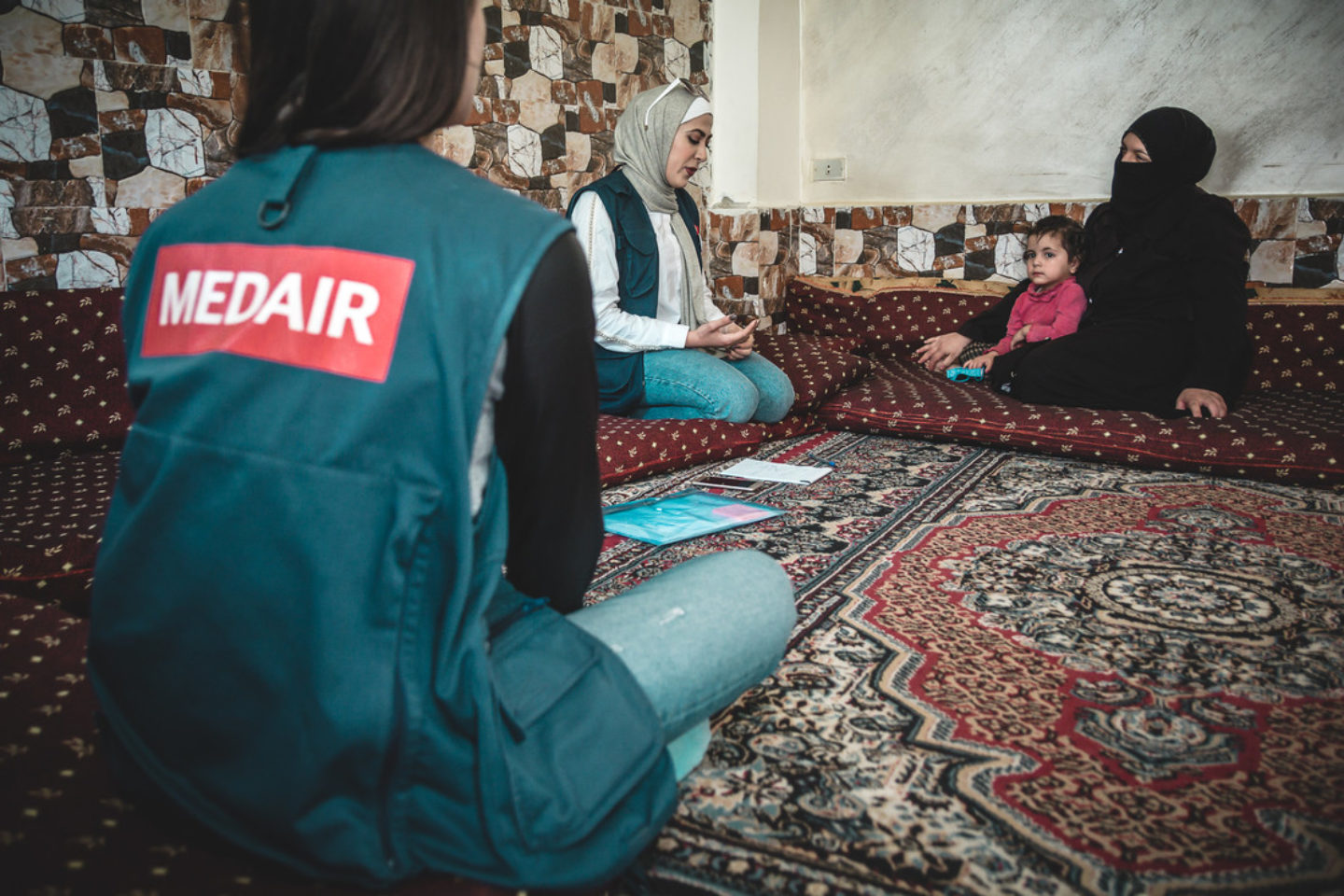
Still, all of us are heartbroken. Sham still asks to see Mohammed; she doesn’t understand the truth. It has been very hard on all of us.
The only wish I have now is to see Syria safe again. I hope to take my family and return.
Medair’s work in Syria is supported by EU Civil Protection and Humanitarian Aid, EU Madad Fund, German Foreign Federal Office, UN Office for the Coordination of Humanitarian Affairs, Swiss Agency for Development and Cooperation, Swiss Solidarity, and generous private donors.
This content was produced with resources gathered by Medair field and global support office staff. The views expressed herein are those solely of Medair and should not be taken, in any way, to reflect the official opinion of any other organisation.
CHECK OUR LATEST STORIES
Featured StoriesStoriesSyriaHealth and Nutrition
A new life for a clinic in Syria
"The clinic is ready!" The news was music to Dr Eyad's,(the director of Tal Salhab clinic), ears. Medair had just completed the rehabilitation of Tal Salhab's only primary health centre, providing it with much-needed medical equipment – offering a lifeline to over...
StoriesSudanWater, Sanitation and Hygiene (WASH)
The Sudan crisis: how Medair is stepping in
Sudan crisis: how Medair is stepping in Twelve months into the armed conflict in Sudan, it has become the largest displacement crisis in the world. To date, 8.4 million people have been forced to flee their homes, and the number is growing every day. Families have...
StoriesUkraineHealth and NutritionMental Health
The Need for mental health support in Ukraine
“I really enjoyed the organization of these trainings. I’ve already gained a lot of interesting knowledge, which, it seems, I was already familiar with, but had never thought about it deeply. Learning new things, I understand how I can apply them in my work to...
StoriesMadagascarWater, Sanitation and Hygiene (WASH)
Medair’s innovative response to drought
In southern Madagascar, Medair aims to play a key role in improving access to water, sanitation, and hygiene for vulnerable communities affected by drought and 'kere' (famine). Normally, people living in remote villages in southern Madagascar need to walk 10 to 40...
StoriesUkraineShelter and Infrastructure
Surviving Adversity
“Sometime around 6 a.m., my nephew called me and said, ‘Are you still sleeping? THE conflict has started.’ I shouted at my children to turn on the television to watch the news. I never thought I would experience something like this at my age. It was a terrifying...
StoriesJordanHealth and Nutrition
Health Improvement Journey
"We lost everything, our home and farm, therefore I left everything behind me. I carry hope to have a better place for me and for my family," Fozeh said, her voice heavy with the weight of displacement but her spirit resilient with the promise of a brighter future....
StoriesMadagascarWater, Sanitation and Hygiene (WASH)Women & Children
Fetching water, a burden for women
In the struggle of finding clean water, women bear the heaviest load "In addition to my duties as a single mother, I have to fetch water three hours away every day," shares Farasoa, a 38-year-old divorcee raising seven children in the Fokontany of Ambory...
StoriesYemenHealth and Nutrition
From a shack to a health unit
Following nearly a decade of conflict in Yemen, the country has experienced a partial collapse of an already fragile public infrastructure, leaving approximately 66 percent of the population in dire need of humanitarian assistance. Yemen’s healthcare system has...


